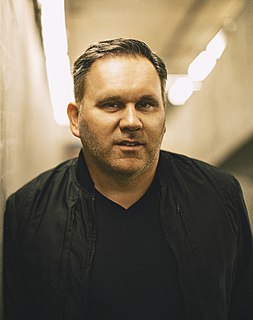A Quote by Soren Kierkegaard
Preparation for becoming attentive to Christianity does not consist in reading many books ... but in fuller immersion in existence.
Related Quotes
What does it matter how cultivated and up-to-date we are, or how many thousands of books we’ve read? What matters is how we feel, how we see, what we do after reading; whether the street and the clouds and the existence of others mean anything to us; whether reading makes us, physically, more alive.
Catholicism is the big house of Christianity. It's got many, many rooms in it. And I've always been attracted to the rooms which are to do with prayer. The mystical strain is the strain whereby the whole day can be given over to prayer through what we call lectio divina, prayerful reading of Scripture, through practice of meditation of when one uses the imagination and the intellect with respect to images, and then finally, and most difficult of all, contemplation, where one empties the mind of all images and all ideas, all concepts, in order to be completely attentive to God.
I'm always reading many books at a time. It might be quite unorthodox, but what I do is, since I'm always surrounded with books, I'll read a page of physics, and then I'll read a chapter of a novel that I really love, and then I'll say, "Oh well, what does that mixture do in my head?" I adore reference books. I love encyclopedias. I also like just going back to original texts, because a lot of these self-help books today.
The trouble today is that many Christians live in a kind of bubble of assumptions about what their Christianity means, especially if it places them comfortably among "the good guys," - assumptions that are likely to be drawn as much from folk-Christianity, surrounding political culture, popular pulp-books about the "End Times," or their favourite guru writer or therapist, than from sober and comprehensive reading of the Bible as a whole. Prophets and preachers have the unwelcome task of pricking that bubble with the sharpness of actual texts and teachings of the Bible itself.
I think I'm still fed by my childhood experience of reading, even though obviously I'm reading many books now and a lot of them are books for children but I feel like childhood reading is this magic window and there's something that you sort of carry for the rest of your life when a book has really changed you as a kid, or affected you, or even made you recognize something about yourself.









































